Political Parties and Elections
At a student-led roundtable at The Daily Star, participants highlighted the need for internal democracy and accountability within Bangladesh's political parties. They criticized the Awami League (AL) for consolidating power while suppressing other political ideologies, which hindered the party's ability to self-reflect and improve. Students advocated for greater decentralization, arguing that the concentration of power in Dhaka alienates citizens in other regions. They called for political parties to reconnect with the people and adopt democratic practices in selecting representatives, emphasizing that the reform movement aims not just to replace the current regime but to ensure future governance is more democratic and accountable.
The discussion also focused on electoral reform and the functioning of the Election Commission (EC). Participants reflected on 16 years of flawed elections, emphasizing the need for transparency, accountability, and an independent judiciary. They supported proportional representation to enhance political plurality and prevent major party dominance. The discussion underscored the need to move beyond the colonial legacy that shapes electoral practices, advocating for reforms that reflect the democratic will of all citizens.
What kinds of reforms should take place within political parties?
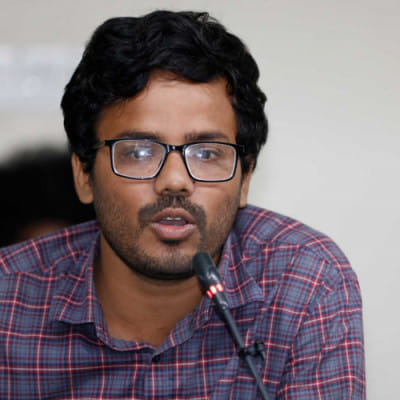
The greatest strength of any political party is its opposition."
Masud Rana, Organiser, Rajshahi University
The mistake the Awami League (AL) made was trying to consolidate its own power while simultaneously attempting to suppress other political ideologies. For example, why did the opposition members of parliament flee after the government fell? This suggests they either considered themselves part of the AL or were conditioned to behave as such. However, the AL could have been stronger if it had allowed opposition parties to retain some power.
The AL, both as a collective and at the individual level, positioned itself almost like a sacred entity, enacting laws that granted them immunity. The former Prime Minister controlled all avenues that could have been used to ensure transparency. If things had been different, this could have been a remarkable feature of the former ruling party. However, no matter how liberal a party may claim to be, it is difficult for it to recognise its own flaws without a strong opposition.
In our current situation, the advisors are making certain mistakes. How long they remain influential depends on their actions. A system cannot claim it will remain in power for another 50 years by itself; it doesn't work that way. Positive actions will speak louder, and people will want to keep us in power. In any situation, we are constantly monitoring them. Although this system of checks and balances may not be welcomed by those in power, their continued acceptance depends on their ability to maintain credibility. Acceptance and criticism are rarely practised within political parties.
The AL regime created a fascist structure across the nation and fostered a form of fascism within the party. No one could ever question this internal fascism. The Mujib family was untouchable. Because of this approach, no one within the AL's ranks genuinely believed in the principle of accountability.
Political parties must be democratic internally. Without an internal system of checks and balances, the entire structure will eventually collapse. Every party has its own cultural framework, which is crucial for any political organisation. A party becomes culturally strong when every layer of it is held accountable. For example, the AL has not democratically selected any of its representatives in the last 15 years. The nomination process was entirely undemocratic. We, the students, urge existing political parties to be as democratic as possible.
The main centre of power for political parties is Dhaka. But why should someone living in Rajshahi, Chattogram, Khulna, or Sylhet be subject to the influence of Dhaka? The more decentralised political parties become, the more powerful they will be and the closer they will be to the people. The same applies to us.
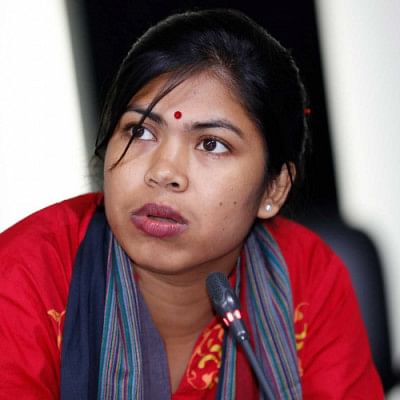
"The former ruling party and the opposition parties shared a fundamental weakness: their disconnection from the common people."
Nazifa Jannat, Organiser, East West University
Their laws, mandates, and overall governance were not people-centric. The main opposition party spent much of its time in protest but failed to lead effectively or provide a clear path forward. Similarly, other parties, such as the Communist Party of Bangladesh (CPB) and leftist groups, were unable to secure the mandates needed to protect people's rights. This resulted in a significant breakdown in their connection with the general public.
Through our movement, we have managed to remove the Awami League regime, but our aim is not to simply replace it with any other political party. This point must be stressed. In the process of restoration, political parties must prioritise public interest when selecting mandates and formulating policies. If political parties can reconnect with the people, it will become evident which party offers the best approach from a policy-making perspective.
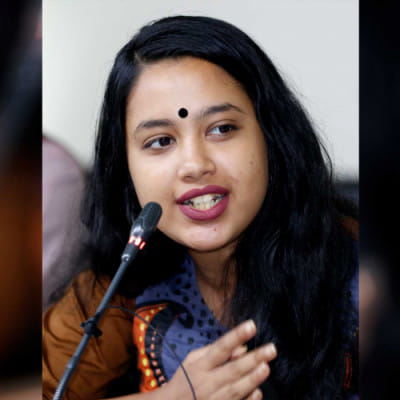
"Contemporary political parties in Bangladesh, or those trying to remain politically active, are fundamentally undemocratic and authoritarian at their core."
Prapti Taposhi, Organiser, Jahangirnagar University
They are quick to dismiss anyone who does not conform to their views and, in fact, are the original proponents of cancel culture, which is fundamentally at odds with true democratic political culture. Whichever party comes to power routinely uses repressive legal provisions to suppress opposition, especially within the AL and BNP.
We can also anticipate some form of reform in inheritance laws, where women have long been denied agency and rights. Additionally, we must move away from the factionalism that dominates our society.
What should be the procedure for an election, and how should the Election Commission (EC) function?
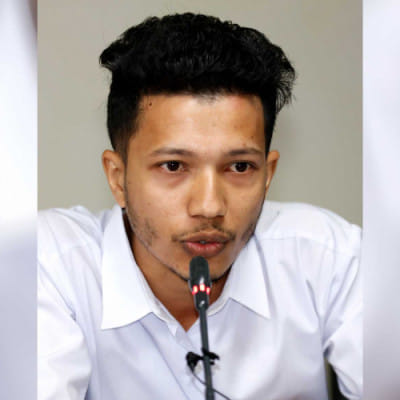
" It is clear that reforming the Election Commission is essential to ensure transparency and accountability."
Mustafiz Rahman, Organiser, Jagannath University
First, we must consider the context of the last 16 years to understand the nature of elections conducted under the Election Commission—the 2014 election by selection, the 2018 election with votes cast the night before, and the 2024 dummy election. Reflecting on these three elections, it is clear that reforming the Election Commission is essential to ensure transparency and accountability.
Secondly, if we are moving towards an election, we must analyse the history of the past 16 years to implement necessary changes through an interim government and guide the country toward improvement. It is also crucial to determine how long the interim government can remain in power according to the constitution.
Furthermore, the independence of the judiciary must be guaranteed. Without an independent judicial system, Bangladesh will never be able to establish a foundation for fair elections.
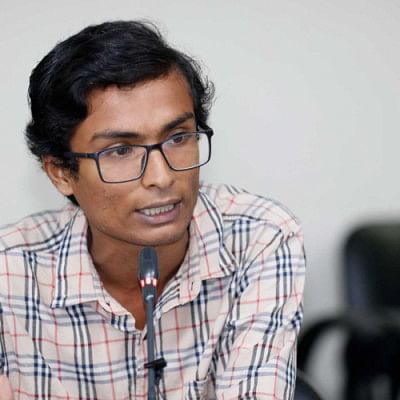
"Those who had more money, wielded more muscle power, utilised the media for propaganda, and exploited the bureaucracy were more likely to secure a nomination."
Mozammel Haque, Organiser, Dhaka University
Looking at past elections, especially the most recent one, securing the nomination seemed more important than winning the election itself, as it was often assumed that whoever won the nomination would automatically win the election.
Those who had more money, wielded more muscle power, utilised the media for propaganda, and exploited the bureaucracy were more likely to secure a nomination. These corrupt practices must be stopped. It is not uncommon to see individuals involved in corruption and money laundering participating in elections. Such practices must be banned.
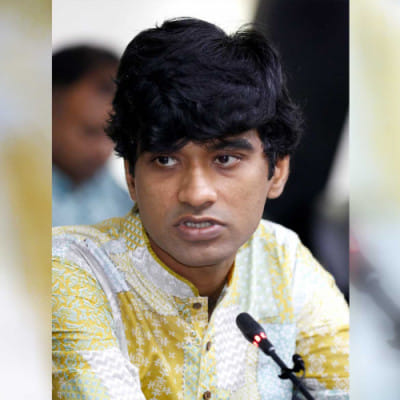
"We want representation from different groups, such as religious minorities and women."
Meghmallar Basu, Organiser, Dhaka University
In countries without proportional representation, elections often end up doing more harm than good. In such systems, voters are left with no choice but to vote for one major party to remove the other—BNP to oust AL and vice versa. Even when we campaigned for a leftist party or candidate, the most common response was: "Your candidate is good, but if we vote for you, it will be wasted." This sentiment arises because, if a vote does not cross the 50 percent threshold, it doesn't count, which is fundamentally undemocratic. Without proportional representation, the fear of a wasted vote drives people to choose between the two largest political parties, thereby hampering political plurality.
Another important issue is that, according to media reports, 90 percent of former parliament members were millionaires. We want representation from different groups, such as religious minorities and women. How can a person earning millions represent someone whose fundamental class interests are different from theirs?
In my opinion, the two most critical factors are implementing proportional representation and strictly regulating the amount of money spent in elections and the sources of that money.

We must not overlook the fact that political influence is not the only factor corrupting the Election Commission; powerful businessmen and industrialists also play a significant role.
Prapti Taposhi, Organiser, Jahangirnagar University
Moreover, the 13th Amendment stipulated that there should be five members in the Election Commission, including a woman, to create an inclusive body. However, this is not reflected in our current EC. The women in the EC often lack agency and rarely have any real scope to voice their opinions. They tend to serve as mere puppets or showpieces, which raises the question: How logical is it to keep women members in the EC under such circumstances? This is something we must critically examine.
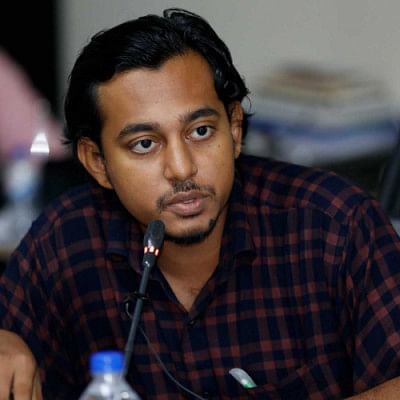
"To effectively realise the people's democratic will, we must begin at the grassroots level."
Arif Sohel, Organiser, Jahangirnagar University
In the 1991 and 2001 elections, the EC acted transparently under the caretaker government, serving as an intermediary among various elite groups. It established a mechanism to balance the interests of pro-Awami and pro-BNP factions, ensuring that elected officials could assume their positions and those who were not elected would remain secure. To effectively realise the people's democratic will, we must begin at the grassroots level. We need an election that includes the millions who are not part of these elite groups. While this will be a challenging task, it is essential to prevent the mass uprising from being in vain.
It is also crucial to recognise that our election practices are still influenced by a colonial mindset, inherited from British rule. The British established the framework for our elections, and this outdated approach continues to shape our understanding of democracy and law. The EC must move beyond this colonial legacy to ensure a truly democratic election process.

"The media can also play a crucial role in keeping the public updated and holding the EC accountable."
Nazifa Jannat, Organiser, East West University
The latest Election Commission Act was passed in 2022. According to this Act, the Chief Election Commissioner and three other individuals will form the Election Commission, with a six-member search committee proposing their names. It is essential for the search committee to publish their meeting minutes and resolutions as public notices. This transparency would ensure public participation by keeping people informed about the EC's activities and fostering a system of checks and balances. The media can also play a crucial role in keeping the public updated and holding the EC accountable.
Views were expressed at a roundtable at The Daily Star with students from various universities across the country, who led the quota reform movement.

 For all latest news, follow The Daily Star's Google News channel.
For all latest news, follow The Daily Star's Google News channel. 



Comments